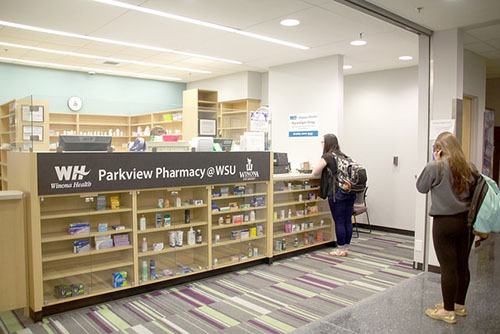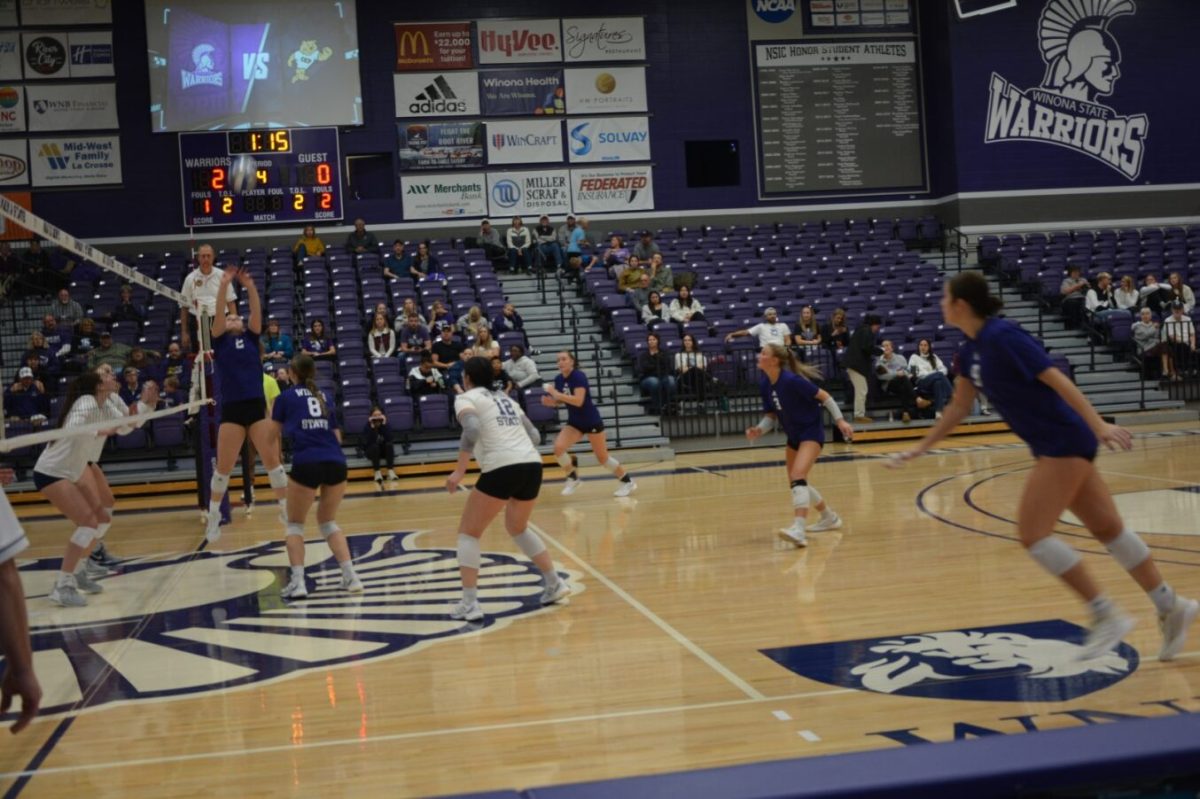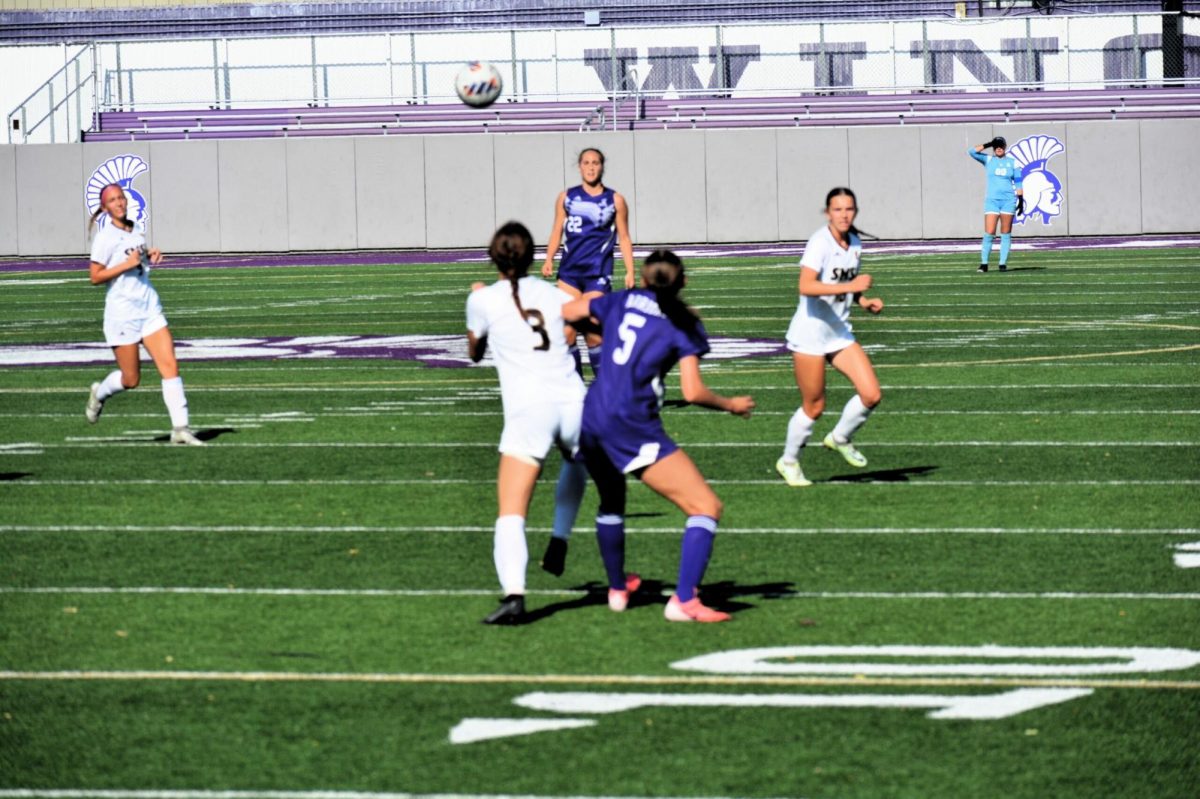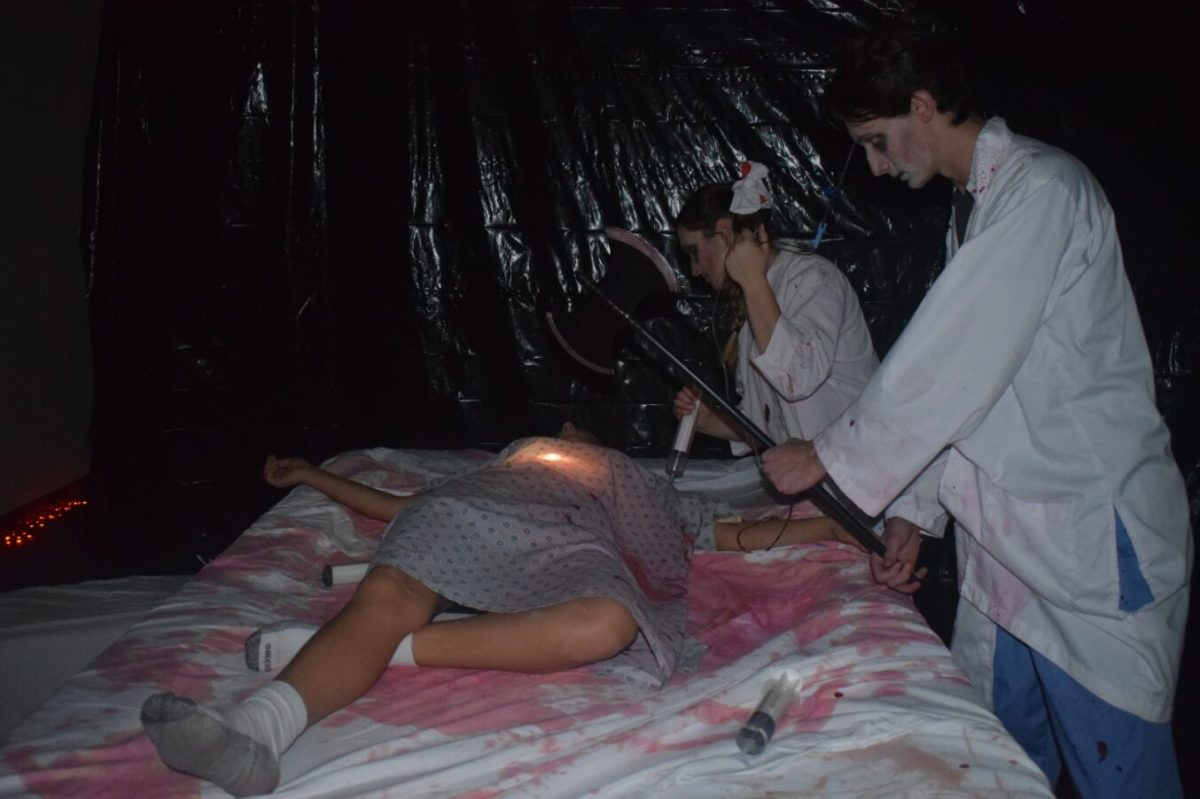
The pharmacy will officially close in May due to expenses and lack of usage by the Winona State community. (Photo by Sara Tiradossi)
Sara Tiradossi / Winonan
Student Senator Nicole Zimmerman, said there is no other option for the Winona State University Parkview Pharmacy, which will officially close in May.
Director of health and wellness services Connie Kamara said the pharmacy will officially close May 20.
“The university loses roughly $ 50,000 every year, and the way it has been, currently, Winona State covered 40 percent of the losses from the pharmacy and Winona Health covered 60 percent,” Zimmerman said.
But this year Winona Health wanted to cover 40 percent instead, Zimmerman said.
“It would have been too big of a budget for Winona State,” Zimmerman said. “It’s a lot of money to run an operation just with losses.”
According to Zimmerman, college students are usually tend to not have the same chronic conditions and medication needs to keep the pharmacy a successful entity.
Kamara said she wants the best for students, but ever since the pharmacy opened it has been very hard to keep it running.
“The pharmacy has been experiencing losses every since it opened in August 2010, and there is not enough usage to make it break even,” Kamara said.“During the first two years there were more losses and last year the pharmacy hours were cut down half-time as opposed to all day.”
To combat the loss of convenience the pharmacy provides, Winona State has also been working with pharmacies in town and figuring out a delivery service for students, staff and faculty who do not have easy access to the other pharmacies in Winona. All prescriptions from the pharmacy at Winona State will be transferred to the Parkview Pharmacy at Winona Health.
There are also two or three pharmacies in town that will deliver directly to students’ apartments and residence halls as long as they can physically hand medication to the students.
“We wanted to make sure that students were able to maintain the convenience that the pharmacy had, so that they can still have the same service through a pick up or delivery,” Kamara said.
For those who do not have easy access to the pharmacies downtown, the Student Senate committee has made a formal recommendation to administration and staff, advocating for more public transportation to pharmacies around Winona, Zimmerman said.
Also, the public transportation could be extended until 7 or 8 p.m. and Sunday comprised, Zimmerman said.
Health and wellness services discussed with student senate how the money could be put to a better use.
“We could definitely help more of the people that we’re serving at mental health appointments if we use that money to hire mental health practitioners,” Zimmerman said. “But the change won’t happen overnight, obviously.”
According to Zimmerman, 90 percent of appointments at health and wellness services are due to mental health
Another positive option that could come from the replacement of Winona State’s pharmacy is the use of the physical space of the pharmacy.
“The space is hopefully going to be used as a place for the RE initiative and the GBV hotline advocated to continue doing their awesome work on campus,” Zimmerman said.
Kamara said it would be helpful to provide a space where students can have a private conversation but is still accessible she said.
Zimmerman said the space could also be used for an on-campus food shelf. The student senate has been making recommendations about food equity and hunger for students.
“We want to hear students’ voices also,” Zimmerman said. “We need everyone’s thoughts and ideas.”
According to Kamara, this is a positive change because it is not good for a business to operate on losses. She said it does not make sense to be letting money out the door when there are so many other needs.
For some students it may be even easier to have the prescriptions delivered. Kamara said this change will hopefully make the service accessible for everyone.
Kamara said the entire time the pharmacy has been running on campus, health and wellness services has worked with the students and held focus groups, evaluations and patient satisfaction to know how students are feeling.
“We’ve engaged with student senate over the years about reaching out to students, and they wanted to make sure there were alternatives in place,” Kamara said. “They were very diligent in making sure students had the service that they needed.”





































